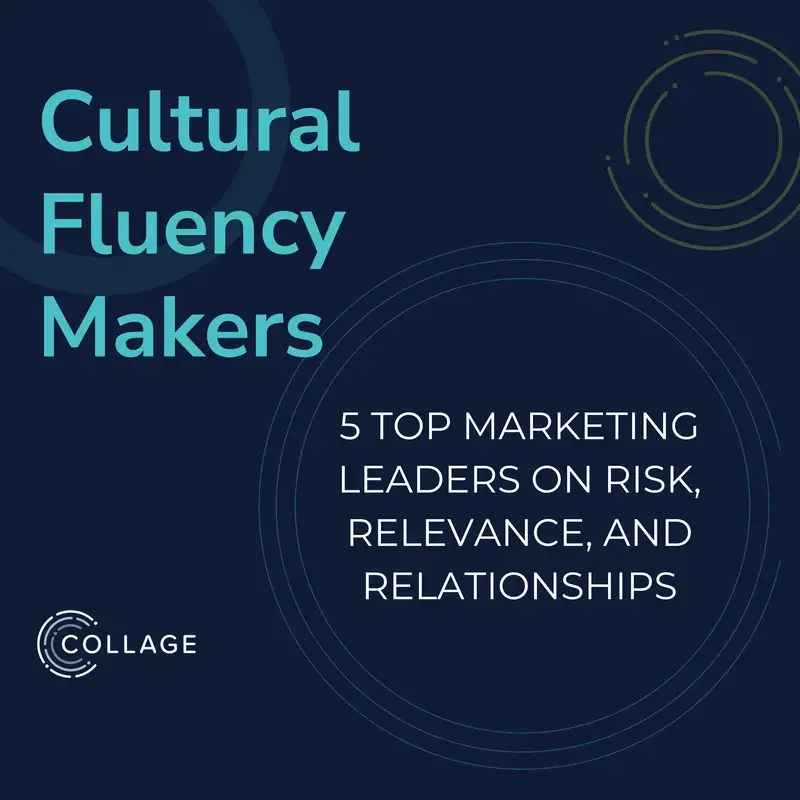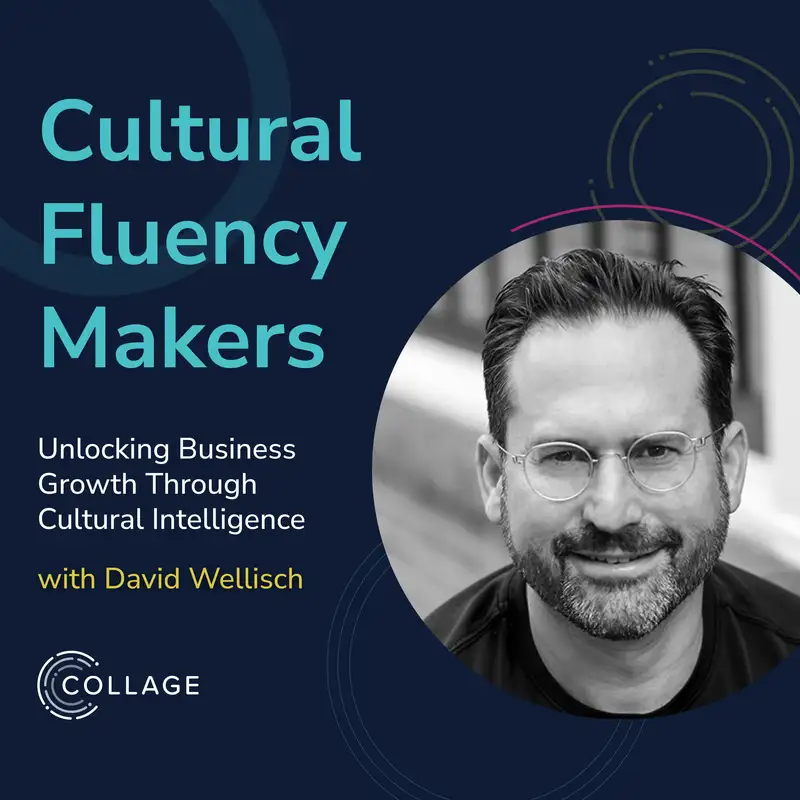Risk, Relevance, and Relationships: 5 Marketing Leaders Decode Cultural Connection
In this special compilation episode of Cultural Fluency Makers, we are highlighting 5 marketing leaders who explore why inclusive marketing is essential for survival and growth. The guests agree that America's demographic shift isn't a future trend, but the current reality, especially among younger generations who are already "majority minority". This requires a fundamental change from broad segmentation to deep, data-driven intimacy that makes customers feel recognized. Modern consumers reject being put in a box; they are intersectional and demand a personal, 24/7 relationship with brands that meets them wherever they are. If this trust is broken, younger consumers will quickly "turn that data signal off" and disappear.
To navigate this new landscape, the leaders present innovative strategies. One compelling approach is "passion-based" segmentation, which unites diverse audiences through universal interests like music, sports, or culinary arts. In an increasingly polarized society, another key strategy is to define an authentic brand role that unifies rather than divides, such as focusing on making people "healthy and happy". While internal challenges like risk aversion can lead to ineffective, "watered down message[s]," the experts argue that playing it safe is now the "riskiest move" a brand can make. Ultimately, the episode positions cultural fluency as the non-negotiable cornerstone of modern marketing and business growth
Takeaways:
- Redefine Your Core Market: Shift your mindset to recognize that for younger audiences, diversity is the mainstream, not a niche segment. Your core strategy must be built on this foundation, rather than treating multicultural marketing as a separate, tactical add-on.
- Earn Your Data Through Value: Younger consumers will grant you access to their data, but they expect a clear value exchange. Use this data to create genuinely personalized and intimate experiences that add value to their lives. If you fail to demonstrate understanding or abuse their trust, they will revoke access and walk away.
- Explore Passion-Based Segmentation: While demographic and cultural nuances are critical, consider a strategy that unites consumers around shared passions like music, gaming, food, or travel. This approach allows you to build broad platforms for connection that can then be activated with culturally specific and relevant executions.
- Define Your Brand’s Role in a Polarized World: Not every brand needs to be an activist. Take the time to determine your authentic role and purpose. In a divided world, a brand that focuses on a unifying mission, such as bringing people joy, health, or connection, can be incredibly powerful and culturally relevant.
- Embrace Calculated Risk Over Playing it Safe: In the current climate, bland, watered-down messaging is a bigger threat than taking a stance. The riskiest move is to try and please everyone, which results in connecting with no one. Build your organization's "cultural intelligence" to make informed, confident decisions that are authentic to your brand and respectful to your audience.
- Engage 24/7, Don't Just Advertise: Today's consumers don't want to be advertised to; they want a continuous, two-way relationship with brands. Your brand must be prepared to engage with them where they are—on social, digital, and experiential platforms—in a way that is genuine and always-on.
- Acknowledge and Prepare for Complexity: True inclusive marketing requires more work than traditional mass marketing. It involves understanding intersectionality, managing multiple nuanced messages, and achieving alignment across complex organizations. Acknowledge this complexity and invest in the talent and resources needed to manage it effectively.
Links:
- Tariq Hassan
- LinkedIn: https://www.linkedin.com/in/tariqhassan1/
- Website: https://www.zerotoone.ai/
- Marissa Solis
- LinkedIn: https://www.linkedin.com/in/marissa-solis-2566a3b/
- Website: https://www.nfl.com/
- Cheryl Guerin
- Alvaro Luque
- Monica Dreger
- LinkedIn: https://www.linkedin.com/in/monicadreger/
- Website: https://www.airbnb.com/
Creators and Guests



